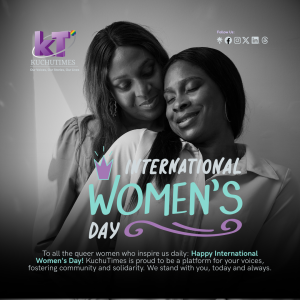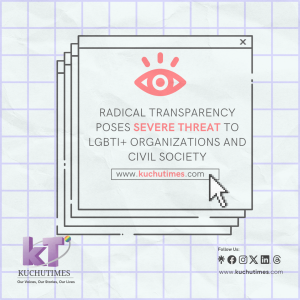Ice Breakers Uganda, earlier this week, launched their data awareness and digitalization project aimed at developing and promoting digital data collection and storage practices within LGBT and sex worker organizations.
The project that is supported by the Digital Human Rights Lab also aims at creating a platform where data and information of different LGBT and sex worker organizations can be readily accessed. It will offer quick access to information pertaining to these organizations for example services offered as well as location.
The pilot phase of this project will cover the districts of Kampala, Wakiso, Masaka, Mbarara, Mbale, Lira, Arua and Gulu. We caught up with Elvis Ayesiga, the Programs Director of IBU and he delved into what this project means for the LGBTI community as a whole.
KT: Why is this project important to the community and why did you choose this particular period to implement it?
EA: This project will see more data collected and secured for LGBT and sex worker organizations in Uganda whereby the different stakeholders will have easy and quick access to this information. Policy makers will also have access to the data which we hope will help them to change or amend policies which affect LGBT persons and sex workers in Uganda in accessing health and legal services among others.
The platform will also create visibility for Ugandan LGBT and sex worker organizations where different consultants and researchers will find it much easier to reach out to them to carry out different studies.
The project had to kick off in March but due to Covid-19 pandemic, we had to wait for its implementation and now as the world adjusts with different measures and guidelines, we chose this particular period to launch because we have seen how this pandemic has affected us as a community. For instance, many community members lacked basic needs like food but because we didn’t have a proper space where donors could access reliable data, it was difficult for them to step in and help.
KT: How will the grassroot LGBTI and sex workers Ugandan benefit from this data awareness and digitalisation project?
EA: They will be empowered with skills and data tools which they can use to collect data within their organizations as well as learn safe storage practices. They will also be able to network with other stakeholders within their districts hence creating partnerships.
Organisations will also be profiled on the platform where different donors, well-wishers and government entities will be able to see the kind of work they are doing in their respective districts hence creating visibility for them.
KT: Given the current pandemic crisis, how do you plan to carry out the upcountry implementation?
EA: We will use online platforms like Zoom, Google meet, etc to reach our target audience but we will also be working hand in hand with them to make sure they are represented as well as participating in all the activities of the project




